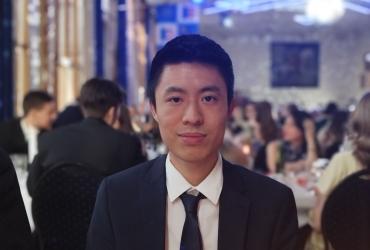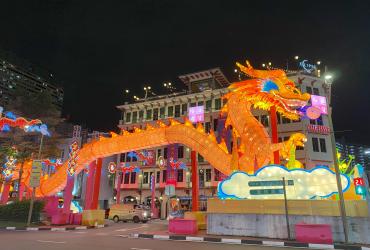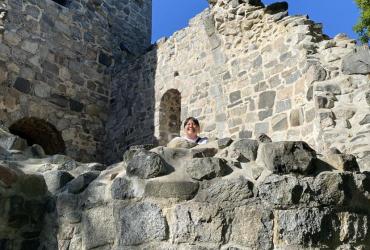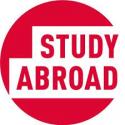Preparing for the exchange was somewhat challenging since I didn’t know what to experience as I had never lived outside of Vancouver or been to Korea before, so I was unsure of what to expect. I did most of my research by watching youtube videos of other students who also went to Korea on exchange. I also joined group chats with other exchange students going during the same term so I could see if other people had the information I needed. It was a great way to meet new people as well and plan meetups once we arrived. I also watched some Korean language lessons so I knew the basics before going to Korea.
Previous Experience
I had no previous experience of a school exchange or even traveling to Korea before this trip. Everything was very new heading into the term and I didn't know what to expect at all. I also had never travelled by myself before so I had a lot of nerves going into this. I am fortunate that I have traveled a lot in the past so I was confident that I would be able to do this independently. However, I was worried about the technical aspect such as the papers necessary, how to set up a new bank account, and residence cards. Therefore, I did my best to research long before the trip.
Location Research
The first thing I researched before going to Seoul was things I could do there, good places to eat, and places to shop. I searched what the weather would be like in the months I was there to ensure I was packing the right clothes. I also searched about the culture there, what to do and what not to do. However, when it comes to research before going to Korea, the most important information to look up is how to obtain a residency card and what to do once you’ve received it. It was a very stressful process when you’re in Korea so it is important to know before you leave.
Financial Preparation
For the financial preparations, I wasn’t sure how much to bring. I didn’t know if I should be using my credit card there and how much cash to bring. After doing some research on Sungkyunkwan University I found out they have a special program for their exchange students where they can open a bank account without a residence card at the Woori Bank on Campus. This was a great option because sometimes foreign cards don’t get accepted and online shopping in Korea prefers local bank cards. So with this knowledge, I gave myself a budget of $1000 a month in cash that I deposited into the Bank. I had some cash on hand as well since there are certain places that only take cash. I did keep my credit card for emergency funding.
Packing
During my exchange, I packed quite heavy that included a lot of clothes, but I found it wasn’t necessary. I recommend only packing basic when it comes to clothes as Seoul has a lot of shopping so your bag will fill up fast. As I went in the spring semester I brought a puffer jacket and a couple of sweaters, however by April the temperature was already really warm so I don’t believe it is necessary to bring a lot of long sleeves. Though in February and March, it would be nice to have some thermal shirts. Everything else I brought was skincare, other hygiene products, electronics, and charging adaptors. Everything else I bought in Korea to save space.
Travel and Transportation
As for my flight to Korea, I took Air Canada and arrived at Incheon Airport in the afternoon. The hardest transit you will have to go through is from the airport to your accommodation. I ended up using a taxi to get to the dorms which cost me around $100,000 won. Other than that first trip from the airport, the most accessible form of transportation is by bus and subway. To ride public transportation you will need a Tmoney card, which can only be reloaded with cash. However, I find taxis there are on the cheaper side as well. You can get everywhere, and the direction can be easily found on NAVER Maps. If you plan on traveling around South Korea the KTX train is a great option but beware that the train leaves right on time and will leave you behind if you’re late.
Preparation Tips for Future Students
From my experience here are some tips I gathered for future students. As I mentioned, I brought roughly $ 1000 CAD per month which looking back I felt was enough. However, expect there might be lots of pricier experiences you will want to do such as visiting Busan or Jeju Island while you’re there, which is something I did do. As for packing, I highly suggest packing light. Just bring the essentials such as basic clothes, skin care, oral care, and sanitary items. Many other home essentials can easily be found cheap at Daiso and easily disposed of later. As for transportation from the airport, the best way to get your living space is through Taxi or airport express bus. Taxis in Korea are generally cheaper, but from the airport, it is more expensive. I do recommend airport express buses as it is more affordable, and they stop at most of the busy areas and the stops are close to where you are staying. Also note that for transit such as subways and buses, they only take transit cards, which can only be filled up with cash.















